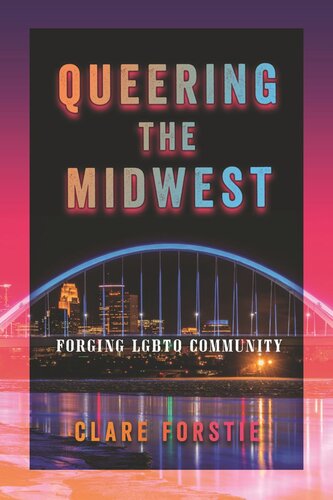

Most ebook files are in PDF format, so you can easily read them using various software such as Foxit Reader or directly on the Google Chrome browser.
Some ebook files are released by publishers in other formats such as .awz, .mobi, .epub, .fb2, etc. You may need to install specific software to read these formats on mobile/PC, such as Calibre.
Please read the tutorial at this link: https://ebookbell.com/faq
We offer FREE conversion to the popular formats you request; however, this may take some time. Therefore, right after payment, please email us, and we will try to provide the service as quickly as possible.
For some exceptional file formats or broken links (if any), please refrain from opening any disputes. Instead, email us first, and we will try to assist within a maximum of 6 hours.
EbookBell Team

4.8
44 reviewsHow LGBTQ community life in a small Midwestern city differs from that in larger cities with established gayborhoods
River City is a small, Midwestern, postindustrial city surrounded by green hills and farmland with a population of just over 50,000. Most River City residents are white, working-class Catholics, a demographic associated with conservative sexual politics. Yet LGBTQ residents of River City describe it as a progressive, welcoming, and safe space, with active LGBTQ youth groups and regular drag shows that test the capacity of bars.
In this compelling examination of LGBTQ communities in seemingly “unfriendly” places, Queering the Midwest highlights the ambivalence of LGBTQ lives in the rural Midwest, where LGBTQ organizations and events occur occasionally but are generally not grounded in long-standing LGBTQ institutions. Drawing on in-depth interviews and ethnographic observation, Clare Forstie offers the story of a community that does not fit neatly into a narrative of progress or decline. Rather, this book reveals the contradictions of River City’s LGBTQ community, where people feel both safe and unnoticed, have a sense of belonging and persistent marginalization, and have friendships that do and don’t matter. These “ambivalent communities” in small Midwestern cities challenge the ways we think about LGBTQ communities and relationships and push us to embrace the contradictions, failures, and possibilities of LGBTQ communities across the American Midwest.